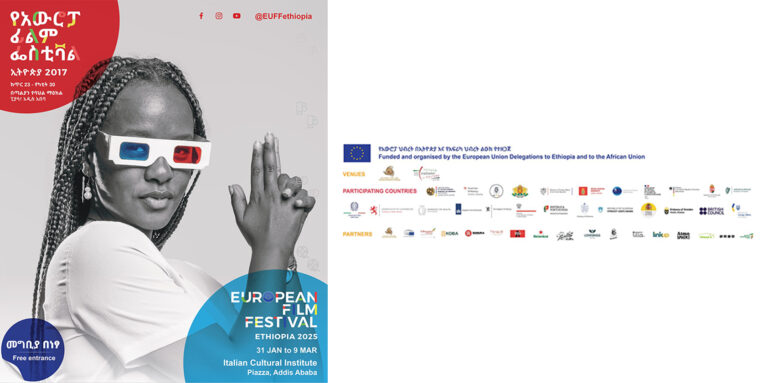As humanity moved to increased complex organizational setups, mostly due to technical progress, the need to establish ground rules to facilitate, amongst other things, harmonious collective social existence became imperative. To this end and through time specialized institutions and structures were created. The proliferation of these entities in turn imposed certain restrictions on society at large, including those of individuals. For instance, individual rights (‘freedom/privacy’, etc.) had to be tempered to give way to the higher values of the common good. Unfortunately, at this late stage in the world system the above individual rights as well as the general ‘well-being’ of the community (work, health, etc.,) are being undermined seriously by the reigning global order. Result; leadership across the board fell in the hands of criminally inclined psychopaths!
The pillars of social existence, both physical and institutional that once led humanity to ‘development’ are being aggressively discounted, compliment of an alienated status quo. Detached from organic real life, material, spiritual, cultural, etc., the global ruling classes of the decaying world system continue to pursue projects that have no clear vision about the future of humanity or the planet as a whole. Societies led by such psychopaths have become willing victims of the blindly pursued universe that goes by the name the ‘techno-sphere’! The once revered cultural values of humanity that solidified all-rounded progress, via the instruments of honesty, sincerity, probity, etc., have all been impoverished, improvised and bastardized. This is because such human values are anathema to the simple logic of the techno-sphere. We give one clear example. The more intense the techno-sphere, the less the procreation! No OECD country (where the techno-sphere dominates) has a fertility rate to replace itself! This is probably the most devastating indictment against late modernity, which blindly worships the techno-sphere! Unfortunately, our ruling simpletons don’t seem to realize the fundamental challenges inherent in the techno-sphere; and the attendant consequences impacting both humanity and nature. Result; a world moving towards the precipice, without any capable leadership to give guidance!
The accelerating dehumanization of the world is reflected on many fronts. Lies tend to dominate politics, economics, etc., etc. Truth based activities, including the very sciences that once led humanity to enlightenment are being subjected to the whims of the politicos. The real sciences behind all major issues (nuclear power, climate change, soil erosion, species extinction, space exploration, WMDs, etc.) are all being used, in one form or another, to sustain the existing lopsided arrangement between transnational capital and humanity! In late modernity, all laws developed throughout the centuries have started to lose their significant imports. Today it is the mechanistic façade of the law, i.e. its legalistic aspect that is driving the proliferation of global rules and regulations. Justice as the real essence of the law is being undermined significantly! The strategy of the global status quo is to make laws to facilitate the expansion of capital. If capital doesn’t expand, it will die or expire. For example, the WTO was established to undermine all human (hence necessarily natural) reactions against the unlimited expansion of capital, which fuels the techno-sphere monster! Here are interesting reflections by an authority on the subject.
“THE TECHNOSPHERE doesn’t particularly care whether you live or die, or whether you are happy or miserable. Its goal is to control you and to make you serve its purposes, which are to grow, to control everything and to dominate the biosphere. How it achieves this control is a matter of what is most efficient. If you are one of its faithful servants, then the best way to make you do your job well is to incentivize you—to give you high status, ample pay and lots of perks. But if you are a lowly menial grunt in its service who, unfortunately, cannot yet be replaced by a shiny new robot, then low pay and low status suffice, and destroying your autonomy and self-reliance while fostering your dependency is the key to making you perform. If you are a technologically useless person but harmless—an artist, a philosopher, writer, poet, free thinker—then the technosphere simply can’t see you, because what you do is not measurable in units the technosphere can understand. But if your thinking turns out to be dangerous or harmful to the techno-sphere—because you are someone who tries to break the chains of dependency and to find ways to live outside of the technosphere, or to undermine it in some other way—then it will consider you as nothing less than a terrorist!”
“Last, but by no means least, the advance of technology has produced a human population that is far more helpless and dependent than any human population before, one that is unable to survive when exposed to the elements, or travel long distances on foot, make its own tools, construct its own shelter, clothe and feed itself without outside assistance, treat diseases with substances available from the environment, or teach its children to survive on their own … How will these people, who have been conditioned since birth to expect to be taken care of by a vast industrial machine, respond to suddenly being forced to rely on their own wits and physical strength to survive? How many of them will not even try and simply await a rescue that will never come?” Dmitry Orlov, Shrinking the Technosphere: Getting a Grip on Technologies that Limit our Autonomy, Self-Sufficiency and Freedom. Good Day!
This was first published in February 2020
CONFUSED WORLD & TECHNOSPHERE
Asset Confiscation and the Quest to Create Economic Stability
Alazar Kebede
Asset confiscation, the legal process of seizing property acquired through illicit means, has emerged as a critical tool in the fight against corruption, organized crime, and financial misconduct. Beyond its role in promoting justice, asset confiscation is increasingly viewed as a mechanism to reinforce economic stability by addressing the systemic threats posed by illegal activities. However, the effectiveness of this tool in creating economic stability depends on the fairness, transparency, and strategic utilization of confiscated assets.
Illicit financial flows, corruption, and organized crime erode the foundations of economic stability by undermining trust in institutions, distorting markets, and diverting resources from productive uses. Asset confiscation directly counters these effects by: Disrupting Illicit Economies – Seizing assets dismantles financial networks that support illegal activities, reducing their influence on formal economic systems.
Restoring Public Confidence – Effective confiscation demonstrates a government’s commitment to the rule of law, rebuilding trust in governance and economic institutions. Redirecting Resources – Appropriately managed, confiscated assets can be reinvested into public programs, contributing to social welfare and economic growth.
While asset confiscation offers clear benefits, its implementation is fraught with challenges that, if mishandled, can undermine economic stability in a number of ways including the following: Ensuring Fairness and Legality: Overzealous confiscation without due process can lead to accusations of political misuse, deterring foreign investment and creating economic uncertainty. Asset Management and Utilization: Confiscated assets often lose value if not promptly and effectively managed. Lack of clear strategies for their reintegration into the economy can waste opportunities for social benefit.
Risk of Market Disruption – Seizing significant assets from businesses or individuals integral to economic sectors can destabilize industries and lead to job losses or capital flight. International Implications: – The global nature of financial crime requires international cooperation for effective asset recovery. Without this, efforts may be limited in scope and impact.
To transform asset confiscation into a driver of economic stability, governments must adopt a comprehensive and transparent approach: Robust Legal Frameworks – Clear laws and guidelines on confiscation ensure that actions are lawful, transparent, and consistent. Judicial oversight and appeals mechanisms are essential to uphold fairness.
Strategic Reinvestment – Confiscated assets should be directed toward sectors that enhance long-term economic stability, such as education, healthcare, and infrastructure. This not only mitigates the economic impact of illicit activities but also fosters inclusive growth. Efficient Asset Management – Creating dedicated agencies to manage confiscated assets can prevent their depreciation and ensure timely and productive utilization.
International Cooperation – Collaborating with global institutions and other nations to trace and recover cross-border assets ensures that confiscation efforts have a wider reach and greater impact. Public Transparency – Reporting on the outcomes of asset confiscation builds public trust and reinforces the legitimacy of government actions.
Several countries have demonstrated the potential of asset confiscation to promote economic stability: Colombia’s Anti-Narcotics Efforts: Confiscated assets from drug cartels have been used to fund community development and social welfare programs. South Africa’s Anti-Corruption Drive: Recovered funds from corrupt officials have been reinvested in critical infrastructure, supporting economic recovery and growth. European Union Initiatives: The EU promotes asset recovery through transnational cooperation, ensuring that confiscated proceeds are returned to legitimate economies.
To conclude, Asset confiscation, when executed with integrity, fairness, and strategic foresight, holds immense potential to reinforce economic stability. By targeting the financial underpinnings of crime and corruption, it addresses systemic risks that undermine growth and prosperity.
However, success depends on governments’ ability to integrate confiscation efforts into broader economic strategies, ensuring that recovered assets contribute meaningfully to societal development. In the quest for economic stability, asset confiscation is a powerful tool, but only when wielded responsibly and transparently.
European Film Festival returns: A celebration of cinema and culture
The highly anticipated European Film Festival is back this year, promising a bigger and bolder experience for film enthusiasts in Ethiopia. Running from January 31 to March 9, 2025, the festival will showcase an impressive lineup of 27 award-winning European films, alongside two Ethiopian productions. The event will take place at the Istituto Italiano di Cultura in Addis Ababa and is completely free of charge.
Organized and funded by the European Union in Ethiopia and the EU Delegation to the African Union, in collaboration with 20 EU member states’ embassies and three European cultural institutes, this year’s festival aims to foster cultural exchange and appreciation for cinema. In addition to film screenings, attendees can look forward to workshops and masterclasses led by industry professionals, as well as engaging Q&A sessions with actors, actresses, producers, and directors.
The festival’s diverse program is designed to not only entertain but also educate aspiring filmmakers and cinema lovers alike. Live performances will further enrich the experience, making it a vibrant celebration of both European and Ethiopian culture.
The European Film Festival has become a significant event on Ethiopia’s cultural calendar, providing a platform for dialogue and collaboration within the film community. As the festival approaches, excitement builds for what promises to be an enriching experience for all attendees.
Mark your calendars for this unique opportunity to enjoy world-class cinema while celebrating the artistic talents of both Europe and Ethiopia.
Ethiopian Jazz Drummer Teferi Assefa passes away at 53
The Ethiopian music community is mourning the loss of Teferi Assefa, a renowned drummer and percussionist, who passed away this past week due to medical complications in the United States. He was 53 years old.
Teferi Assefa was celebrated for his exceptional talent and contributions to the Ethiopian jazz scene. Known for his unique beats and innovative percussion style, he played a pivotal role in shaping the sound of many local bands, including the Urban Vibes band, which recently performed at the Acacia Jazz Festival. His drumming was characterized by a deep connection to the rhythms of Ethiopian music, blending traditional elements with contemporary jazz influences.
Born and raised in Ethiopia, Teferi’s passion for music began at a young age. He dedicated his life to exploring various musical traditions and was committed to teaching others the art of drumming. His effervescent personality and friendly demeanor made him a beloved figure among peers and fans alike. Throughout his career, Teferi was not only a performer but also a mentor to many aspiring musicians. He believed in sharing knowledge and fostering talent within the community. “His entire life was centered on music,” said one of his colleagues. “He was busy performing regularly, researching, and teaching.”
Teferi’s influence extended beyond performance; he was actively involved in community initiatives aimed at promoting music education and cultural exchange. His work helped elevate the profile of Ethiopian jazz both locally and internationally.
His drumming style was described as powerful yet nuanced, with a unique ability to make the drums “speak” through passionate rhythms. “It was great to watch him play—the beat of his bass drum held everything together,” noted a fellow musician. “He could hit a beat or drop an explosion on the tom-tom that resonated deeply with audiences.”
As news of Teferi’s passing spread, tributes poured in from fans, fellow musicians, and cultural organizations across Ethiopia. Many took to social media to express their condolences and share memories of his performances. His contributions to Ethiopian music will be remembered for years to come.
Teferi Assefa leaves behind a legacy of creativity, passion, and dedication to the art of drumming. His work has inspired countless musicians and enriched the cultural fabric of Ethiopia. As the music community reflects on his life, they honor not only his talent but also his commitment to nurturing the next generation of artists.






